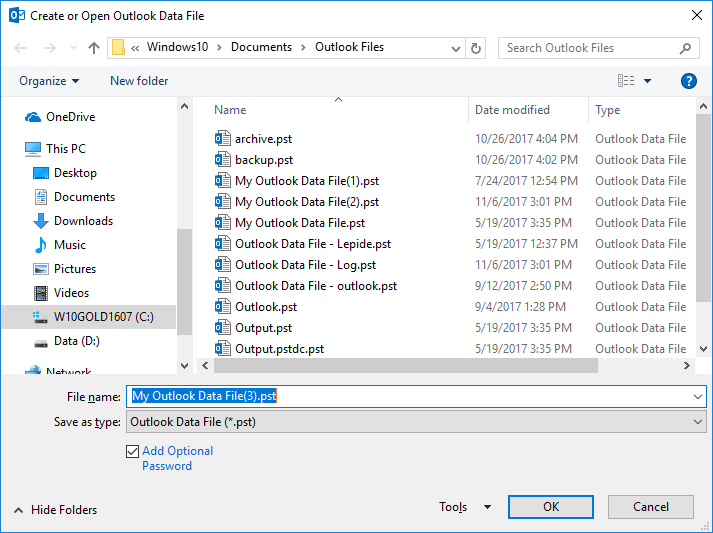

If you want to allow the delegate to see all of the messages in your Inbox, you must grant additional permissions.

The delegate can also respond to meeting requests on your behalf.
#Outlook private folders full#
By default, when you add a delegate, the delegate has full access to your Calendar and Tasks folders. You can grant a delegate permission to read items in your folders or to read, create, change, and delete items. If you wish only to share Outlook folders then refer to, KB00111004, Sharing an Outlook calendar.Īs the person granting permission, you determine the level of access that the delegate has to your folders. If you want to grant additional permissions, such as allowing a delegate the ability to create e-mail messages or respond to meeting requests on your behalf, you must use Delegate Access.

This is the scenario that this article assumes, however, Delegate Access can also be used between peers.ĭelegate Access is a more advanced feature than just sharing your Outlook folders. You can also grant additional permissions that allow your delegate to read, create, or have full control over items in your Exchange mailbox.ĭelegate Access is most commonly used between a manager and his or her assistant, where the assistant (delegate) is responsible for processing the manager's incoming meeting requests or e-mail messages and coordinating the manager's schedule. Similar to having an assistant help you manage your incoming paper mail, you can use Microsoft Outlook to allow another person, known as a delegate, to receive and respond to meeting requests or responses and to send e-mail messages on your behalf. Delegating someone else to manage your mail and calendar


 0 kommentar(er)
0 kommentar(er)
